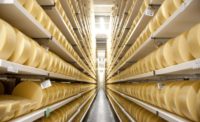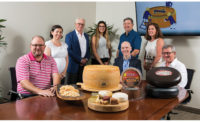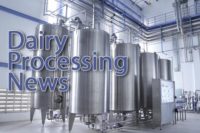Schuman Cheese, Fairfield, N.J., said it will label its Parmesan cheese products with a seal to verify product quality and manufacturing integrity. The move follows widely covered news reports of adulteration and fraud by some companies. The Food and Drug Administration investigated one product that was labeled “100% Parmesan Cheese.” FDA found that the product contained no Parmesan.
Schuman’s True Cheese trust mark will appear on Schuman cheeses and snacks sold in supermarket and mass retail channels. Newly labeled products are appearing in some stores and others will be phased in as customer orders are filled.
Schuman’s quality seal for cheese follows similar food industry initiatives for olive oil, honey and fresh fish. The cheesemaker said the seal is intended to help consumers know the product they are purchasing is real and is what it claims to be. The True Cheese label will mean the verified product is made only with milk, cultures, salt, enzymes, is aged as required, and that any use of an anti-caking ingredient is at or below industry accepted levels and properly labeled.
Covance Food Solutions is testing the products. Periodic testing of randomly selected products taken from retail locations will be performed at Covance’s laboratory in Madison, Wis. Schuman has a cheese plant in the state.
“We guarantee that all of our products are properly labeled and produced in accordance with the strictest regulations. Our partnership with Covance provides us with an objective, third-party verification of that promise,” said Neal Schuman, third-generation CEO of his family-owned company. “Our goal is to assure consumers that they’re getting real Parmesan, Asiago and Romano cheeses when they buy cheeses with the True Cheese trust mark.”
According to the company, apart from the seal and related testing of items displaying the mark, there’s no real way for consumers to self-determine exactly how a cheese is made or if excessive fillers might be included in the package.
Of the approximately 463 million pounds of domestically-produced varieties of Italian hard cheeses sold in the U.S. each year more than 90 million pounds (mostly in grated and dehydrated forms sold in canisters) are adulterated, according to Schuman Cheese and industry reports. These adulterated cheeses can contain unwarranted levels of starches, fillers, and even vegetable oil-based processed cheese.
“Some ingredient labels show some telltale signs of adulteration such as low protein levels indicating a likelihood that excessive non-cheese fillers have been used. But for the most part, lab tests are required to verify the truth,” Schuman said.


